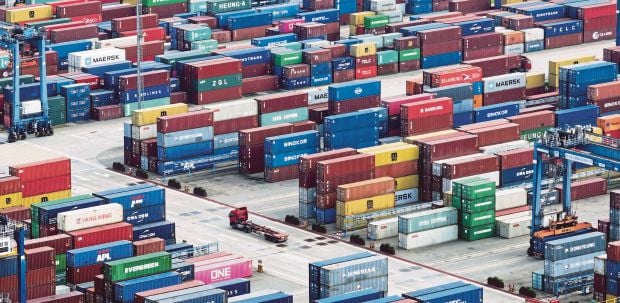IN Malaysia, the Bantah TPPA movement continues to gather momentum, as various non-governmental organisations from across the political and ideological divides have banded together to urge the Malaysian government to abandon negotiations to enter the Trans-Pacific Partnership Agreement (TPPA), a cross-Pacific free trade agreement (FTA) which is the economic centrepiece of United States President Barack Obama administration’s “rebalancing” towards Asia.
And yet, when we examine Malaysia’s own track record when it comes to FTAs, the reality may well be far less bleak than the dark admonishments of the Bantah TPPA NGOs.
Remember the acrimonious debate that ensued when the International Trade and Industry Ministry navigated the signing of the Japan-Malaysia Economic Partnership Agreement in 2006?
Supporters of the domestic automotive industry warned that the Malaysian car industry would be decimated under the deluge of cheaper car imports.
Almost a decade later, Perodua is still the largest-selling marque in Malaysia. While Proton continues to struggle, arguably most of its troubles are self-inflicted, as years of quality issues and inability to tap export markets have finally caught up with the Shah Alam-based carmaker. More importantly, Malaysian consumers have been the main beneficiaries, with a greater variety of automotive brands now cruising down the roads and highways of our great nation.
More interestingly, I’m not sure if Malaysians actually realise that we have already signed FTAs with six countries: Japan, Pakistan, New Zealand, India, Chile and Australia.
At the regional level, Malaysia and her fellow Asean partners have established an Asean Free Trade Area. In addition, Asean has also concluded FTAs with China, Japan, South Korea, India, Australia and New Zealand. And let us not forget the mother of all FTAs, the World Trade Organisation, of which Malaysia was a founding member in 1995.
In other words, amidst all the talk of doom and gloom concerning the nature of FTAs and warnings of economic imperialism, we are actually living in a reality where the agreements are already a fact of economic life in Malaysia.
Ah, someone would say, those FTAs, which we are already signatories of, do not involve that “Great Satan”, the United States of America. This time is different, they argue. The TPPA will drag Malaysia in chains, making us an American client state in the same way that Malaya was an economic vassal during the height of the British Empire. So they say.
So, I was definitely intrigued when Robert Lawrence, one of the professors in the Summer Seminar for the Edward S. Mason Fellows programme — and also a former member of former president Bill Clinton’s Council of Economic Advisers — shared the main arguments in his latest book, Rising Tide: Is Growth in Emerging Economies Good for the United States?
You see, while many Malaysians are fearful of the TPPA and the potential negative implications for the Malaysian economy, an exact mirror image of these fears are playing out in the minds of many Americans. They are afraid of the TPPA; these Americans who are supposed to be the winners, if and when the TPPA gets signed and ratified.
In Rising Tide, professors Robert Lawrence and Lawrence Edwards identify three main arguments mustered against FTAs: that trade leads to job losses in America; that trade leads to reduction in welfare for Americans; and that trade leads to rising income inequality within American society. Then, the authors proceed to outline arguments that emphatically refute, in classic Mythbusters fashion, the aforementioned perceptions regarding free trade.
Interestingly, the opposition around free trade in the US centres around “emerging economies”; specifically, the fear that Malaysians, Singaporeans, Vietnamese and citizens of nine other TPPA candidate countries are out to eat Americans’ lunch.
In newspapers and television shows, American commentators obsess on the perception that citizens of developing countries are more numerous, more educated, and more willing to work harder for much cheaper wages. Like the European obsession with the “Yellow Peril” at the end of the 19th century, Americans today fear that their jobs will be outsourced to China, India and other developing countries.
Rising Tide addresses those concerns head-on. This being a book written by professional economists, the prose isn’t always accessible to the mildly curious lay reader. But those willing to invest time reading it will find many interesting insights around the whole debate on free trade.
In short, while the authors do not entirely dismiss the likelihood that free trade has had some adverse effects on segments of the American economy, they have marshalled data to show that “trade has often been assigned a role that far exceeds its impact”.
The authors argue that most of these negative outcomes — job losses, reduced welfare or rising inequality — are due more to other factors, including productivity growth due to information technology and Internet connectivity, rising oil prices in the past decade, as well as the mounting US federal budget deficit.
Skilfully, the authors examine the usual tropes employed by those opposed to free trade, and then proceed to show, through impressive use of long-run economic data, that free trade has often been the easy scapegoat for US economic problems, while the underlying causal factors remain under the public radar.
Now, back to Malaysia.
Our nation is actually riding on the back of some very powerful long-term economic trends: we are a young nation, with a relatively well-educated workforce; we are ensconced in the heart of East Asia, which continues to be the fastest growing region in the world; we have inherited strong laws, institutions and the English language from our colonial experience; we have a very well-diversified economic base, with a strong manufacturing base which complements our commodities and natural resources; and we remain well-poised in terms of foreign relations, maintaining good relations with both the US as well as China.
And yet, there are sections of Malaysian society that argue that our country will soon suffer economic bondage if we sign up to the TPPA, even as Americans fear permanent loss of competitiveness under the same FTA. Who is right, and who is wrong?
Maybe, just maybe, free trade has become a convenient scapegoat for the very real economic hardships of ordinary Malaysians, as how it has been in the US. Certainly, the authors of Rising Tide do not pretend to claim that free trade is all sweet apple pie. Like any public policy matter, there will be winners and there will be losers.
And the TPPA itself may not necessarily be the best vehicle to promote the economic benefits of free trade. Even economist and New York Times columnist Paul Krugman — who is no shrill anti-trade propagandist — argues that the actual benefits of the TPPA will accrue more to corporations with intellectual property rights to protect, rather than the wider American economy.
And yet, amidst all the warnings about the TPPA, we should step back and ask the question of whether free trade really is the “Great Satan” that is poised to ravage the Malaysian economy and send us back to the hated days of colonial pillage.
I would posit that just as free trade has been unfairly demonised in the US in lieu of a host of other, more intractable economic challenges, so it has been in Malaysia as well.
Instead of populist warnings and emotional appeals to the basest fears of Malaysians, perhaps it is time for both proponents and opponents of free trade to examine the facts underlying their heated arguments, as the authors of Rising Tide have assiduously done.
Perhaps, like any public policy tool, free trade must be made to serve our interests, not the other way around.
This means avoiding a brimstone-and-pitchforks perspective on free trade, but rather taking the time to examine the evidence, and engaging with our trading partners to craft an agreement that truly reflects our interests and limits our liabilities as a collective.
Walking away from the TPPA will only harm Malaysia as a nation. We need to engage, and certainly we need to do this intelligently and in a transparent manner: engaging the various stakeholders in our society and ensuring that all concerns are heard and addressed.
Just as importantly, we cannot continue to avert our eyes from the very real challenges facing the Malaysian economy: an education system badly in need of rejuvenation; an over-emphasis on academic achievement at the risk of overlooking the importance of broad-based skills training; a log-jammed political system that encourages blind partisanship and patronage; unwillingness on all sides, policymakers and industry players alike, to face the implications of Malaysia’s continued dependence on foreign labour.
It’s time we stop scapegoating free trade as the primary source of our woes — an economic version of “us versus them” — and start to tackle the real problems within ourselves that are holding us back as a nation.





